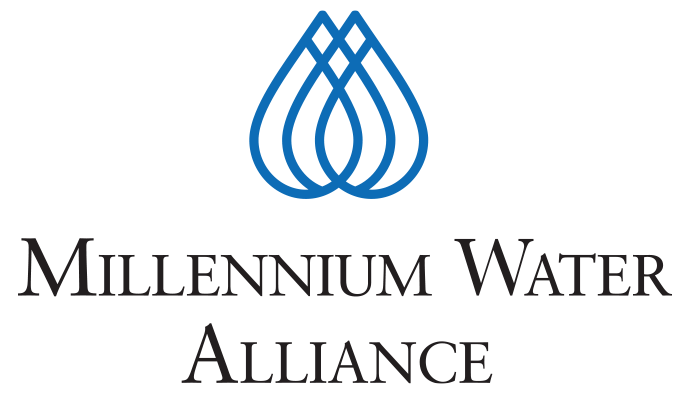On March 20, 2024, “Liquid Assets: Carbon Credits in Water Conservation, Access, and Security” webinar, presented by the Millennium Water Alliance (MWA) in partnership with the University of Colorado Boulder (UCB) and WaterAid, highlighted the intersection of carbon finance and water security, marking a significant step forward in the sustainable management and conservation of global water resources. Supported by the Conrad N. Hilton Foundation, the event convened leading experts from diverse backgrounds to explore the innovative use of carbon credits in the water sector. In addition to highlighting key research, the webinar fostered dialogue on practical strategies for using carbon markets to improve water conservation and access.
Key highlights from the Liquid Assets webinar:
- Groundbreaking Research Presentations: Evan Thomas (UCB) and Jason Lopez (MWA) shared compelling insights from groundbreaking studies, including “Decarbonizing Water: Applying the Voluntary Carbon Market Toward Global Water Security” and the MWA’s Carbon Credits for Water Feasibility and Learning Study. These presentations underscored the critical role that carbon credits can play in advancing global water security and provided a deep dive into the challenges and opportunities facing the sector.
- Expert Panel Insights: The event featured a dynamic panel discussion with Nabil Chemaly (Conrad N. Hilton Foundation), David Spira (Deloitte), Lars Osterwalder (MWA Learning Paper Consultant), Lara Lambert (Water Mission), and Kelly Parsons (WaterAid America), who brought invaluable perspectives from their extensive experience in the WASH and water sectors. Their dialogue shed light on the complexities of implementing carbon credit programs for water security, from ground-level challenges to strategic global interventions.
- Engage a diverse audience: With participants from respected organizations such as USAID, Save the Children, and Water Mission, the webinar facilitated a multifaceted exploration of carbon finance in the WASH sector. The breadth of participation underscored a collective commitment to exploring innovative financing mechanisms for water projects.
The discussions and insights shared during the Liquid Assets webinar underscore the burgeoning potential of carbon finance to catalyze significant progress in water conservation, access, and security. As we reflect on the event’s contributions to the dialogue on sustainable water solutions, the following resources are available for those interested in further exploring the topic or reviewing the presentations:
- Webinar Recording: A valuable resource for revisiting the insightful discussions and presentations that took place during the event.
- In-depth research papers: Gain a comprehensive understanding of the potential of carbon credits in the water sector through the Decarbonizing Water report and the Millennium Water Alliance learning paper.
- Learning and Feasibility Study: Carbon Credits for WASH Interventions (link includes a summary of the learning paper and key findings)
- Presentation Slides: Access key findings and data points from the webinar decarbonizing water presentations for a closer look at the research.
- Wall Street Journal article: Explore the broader implications of the Decarbonizing Water report in the context of financing global water security through voluntary carbon markets.
The Liquid Assets webinar not only highlighted the innovative intersections between carbon finance and water security, but also underscored the importance of collaborative research and strategic action in this critical area. With the support of the Conrad N. Hilton Foundation and the collective expertise of the panelists and participants, the event marked a promising step forward in harnessing carbon finance for a sustainable future for the world’s water resources.
